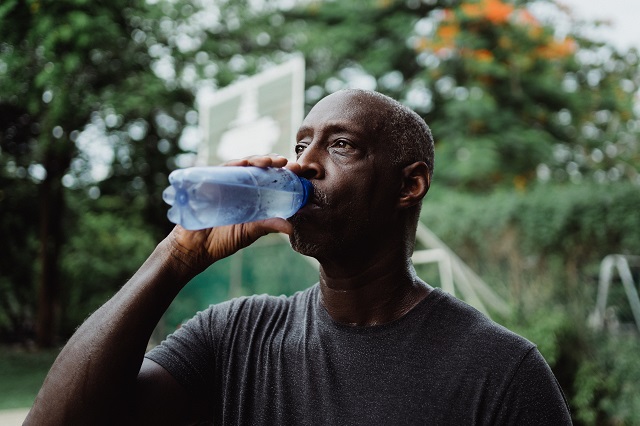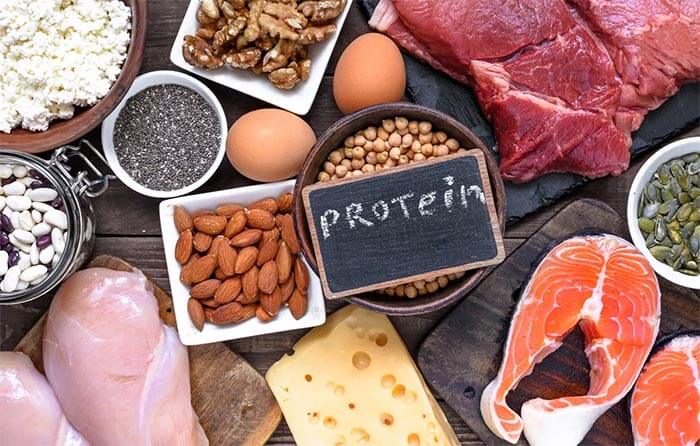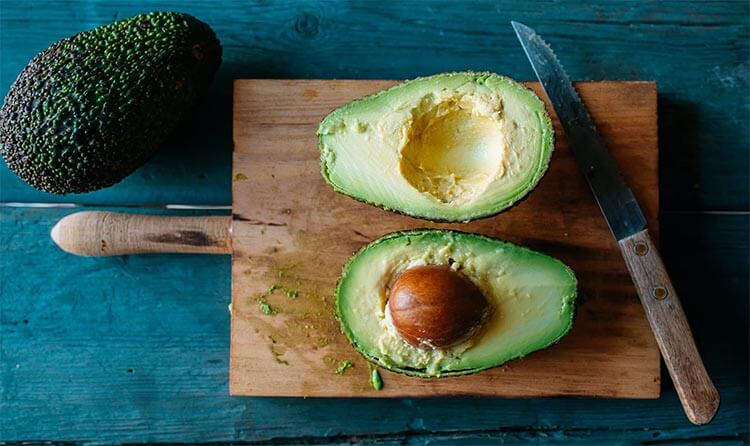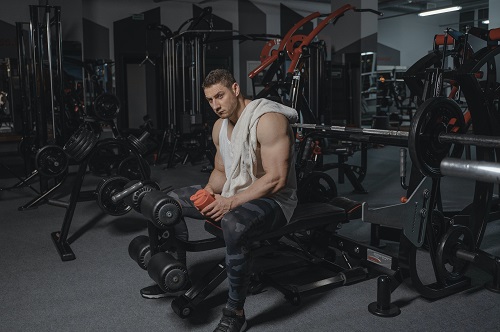When it comes to gaining muscle, your diet plays a pivotal role. Just as exercise helps to stimulate muscle growth, nutrition provides the building blocks required to make it happen. Specifically, the balance of macronutrients—protein, carbohydrates, and fats—in your diet can significantly impact your muscle gain outcomes.
Protein is widely recognized for its role in muscle repair and growth, but carbohydrates and fats are equally vital. Carbohydrates provide the energy required for intense workouts, while fats are needed for essential bodily functions, including hormone production that can influence muscle growth.
Incorporating a variety of high-protein foods, coupled with ample carbohydrates and healthy fats, into your daily diet can assist you in meeting your muscle gain goals. This article will delve into the best foods for muscle gain and how you can incorporate them into your diet effectively. From animal to plant-based protein sources, and from whole grains to fruits and nuts, a diet for muscle growth can be diverse, tasty, and highly nutritious.
 How Protein Contributes to Muscle Gain
How Protein Contributes to Muscle Gain
As the basic building block of muscle tissue, protein plays an indispensable role in muscle gain. When you exercise, especially during strength training, your muscles endure tiny tears. Protein comes into play in the repair and rebuilding of these muscle fibers, leading to muscle growth.
After a workout, the body triggers muscle protein synthesis – a process that repairs the damaged muscle fibers and builds new ones. The process requires amino acids, the fundamental units of protein. A diet rich in protein ensures a steady supply of these amino acids, facilitating efficient muscle repair and growth.
Clinical studies have underlined the importance of protein for muscle gain. Research has shown that consuming a protein-rich meal or supplement after a workout can significantly boost muscle synthesis. But it’s not just about the post-workout protein; a consistent intake throughout the day matters, too. Ensuring regular protein consumption can keep your body in a state of muscle synthesis, contributing to continuous muscle growth.
Sources of protein are abundant, with both animal and plant-based foods offering ample amounts. Lean meats, fish, eggs are all excellent animal sources, while plant-based proteins can be found in foods such as lentils, chickpeas, and tofu. The key to effective muscle gain lies in choosing high-quality protein sources and incorporating them effectively into your diet. In the next section, we will explore some of the best food sources of protein for muscle gain.
The Best Foods to Consume for Protein
When it comes to muscle gain, not all protein sources are created equal. The quality of protein is determined by its amino acid composition, specifically the presence of nine essential amino acids that our body can’t produce on its own. Here’s a rundown of some high-quality protein sources you should consider incorporating into your diet:
- Lean Meats: Chicken breast stands out as a top source, packing in about 31 grams of protein per 100 grams. Other lean meats, such as turkey and lean cuts of pork, are also excellent choices.
- Fish: Tuna, salmon, and sardines are not only packed with protein but also rich in omega-3 fatty acids, which can aid in muscle recovery and inflammation reduction.
- Eggs: An egg is a powerhouse of nutrients. With around 6 grams of protein, essential vitamins, and minerals, it’s one of the most complete food sources available.
- Dairy: Greek yogurt, cottage cheese, and milk have a high protein content and are also good sources of calcium and other essential nutrients.
- Plant-based Proteins: For those who follow a vegetarian or vegan diet, there are plenty of protein-rich options. Lentils, chickpeas, tofu, tempeh, and seitan are among the most protein-dense plant foods. Quinoa is also a good choice, as it’s one of the few plant foods that contain all nine essential amino acids.
Remember, variety is key. A diverse diet ensures a comprehensive mix of nutrients, helping you achieve your muscle gain goals more effectively. Let’s now move on to discussing the role of carbohydrates and fats in muscle gain.
 How Carbohydrates and Fats Assist Muscle Gain
How Carbohydrates and Fats Assist Muscle Gain
Carbohydrates and fats are often misunderstood in the context of muscle gain. However, they both play critical roles in this process. Carbohydrates act as a primary source of energy for our body. They are broken down into glucose, which is then used to fuel our muscles during exercise. Consuming carbs post-workout also replenishes glycogen stores, assisting in muscle recovery.
Fats, on the other hand, are essential for many bodily functions, including nutrient absorption and hormone production. Certain fats, such as omega-3 fatty acids, are known to reduce inflammation, which can be beneficial for muscle recovery. Moreover, fats provide a dense source of calories – essential for those trying to put on muscle mass.
Ignoring these macronutrients can hinder workout performance and muscle recovery, ultimately impeding muscle gain. To make the most out of your muscle-building efforts, you should include both carbohydrates and fats in your diet. Let’s take a look at some of the best food sources of these nutrients.
Best Carbohydrate and Fat Sources
Incorporating nutritious sources of carbohydrates and fats into your diet can aid muscle gain significantly. When it comes to carbohydrates, opt for whole grains such as brown rice and quinoa. These not only provide the energy your muscles need to function but also contain fibre, which aids digestion.
For quick energy, fruits like bananas and oranges can be excellent choices. Besides being a source of carbohydrates, they also contain vitamins and minerals that support overall health and wellbeing. Sweet potatoes are another great option, packed with carbs and vitamin A.
When it comes to fats, opt for foods rich in healthy monounsaturated and polyunsaturated fats. Avocados, for example, are an excellent source of monounsaturated fats, and they also contain fibre and essential vitamins. Nuts and seeds, including almonds and flaxseeds, provide healthy fats and protein.
Fatty fish, like salmon and tuna, are rich in protein and also provide omega-3 fatty acids, a type of polyunsaturated fat that can help reduce inflammation and aid muscle recovery.
By choosing high-quality sources of carbohydrates and fats, you can ensure that your body gets the energy it needs for intensive workouts, while also providing it with the nutrients required for muscle recovery and growth.
 Hydration and Muscle Gain
Hydration and Muscle Gain
Hydration plays a vital role in your overall health and also significantly impacts muscle gain. Water is involved in every process in our bodies, including muscle building. Staying adequately hydrated helps maintain the fluid balance in our bodies, which aids in the transport of nutrients to your muscles, supporting their health and growth.
One significant function of water is to help with the digestion and absorption of nutrients. Consuming sufficient amounts of water aids the process of breaking down the food we eat, enabling the nutrients to be used effectively by our bodies. For muscle growth, it is particularly essential as it helps transport the amino acids (the building blocks of proteins) into muscle cells, contributing to muscle repair and growth.
In addition, hydration is crucial during workouts. When we exercise, our bodies lose water and electrolytes through sweat. Rehydrating helps replenish these losses, maintain electrolyte balance, and prevent dehydration, which can lead to muscle fatigue and weakness. It also helps regulate our body temperature, ensuring we can work out efficiently.
Beyond aiding the metabolic processes involved in muscle synthesis, adequate hydration also plays a significant role in muscle recovery post-workout. It aids in flushing out toxins from the body and can reduce muscle soreness and inflammation.
The amount of water each person needs can depend on various factors, including their age, sex, weight, and level of physical activity. However, a general guideline is to aim for at least 8 glasses of water a day. Remember that if you’re engaged in intense workouts, you may need to increase your water intake to compensate for the additional fluid loss.
It’s important to note that while water is the best source of hydration, other fluids like milk and natural fruit juices, as well as high-water foods like fruits and vegetables, can also contribute to your daily fluid intake. However, it’s best to limit beverages that are high in added sugars or caffeine.
In summary, incorporating adequate hydration into your routine can significantly support your muscle gain efforts by facilitating nutrient transport and absorption, aiding in workout performance, and supporting muscle recovery.
Incorporating these Foods into Your Diet
Knowing which foods aid in muscle gain is one thing, but incorporating these nutrient-dense foods into your daily diet is another crucial step. Here are some practical ways to include these muscle-building foods in your meals and snacks.
Start your day with a high-protein breakfast. You can make a smoothie with protein-rich Greek yogurt, some oats for carbohydrates, and a handful of your favorite fruits. Not only is this a balanced meal, but it also provides an energy boost to start your day.
For lunch, you could have a lean chicken breast or fish like tuna – both excellent sources of protein. Pair this with some whole grains such as quinoa or brown rice, which provide necessary carbohydrates. You can also add a side of vegetables or a fresh salad to round out the meal.
Snacks shouldn’t be overlooked, as they can provide additional protein and other nutrients throughout the day. Options like hard-boiled eggs, nuts, seeds, and Greek yogurt are not only easy to prepare but are also packed with proteins and healthy fats. Remember, it’s better to opt for snacks that offer nutritional benefits rather than empty calories.
When it comes to dinner, don’t shy away from incorporating healthy fats into your meal. Foods like avocados, fatty fish like salmon, and nuts are excellent choices. These foods provide essential fats, which are necessary for energy and supporting overall health.
Remember to stay hydrated by drinking plenty of water throughout the day. It’s especially important to rehydrate after workouts to replenish any fluids lost through sweating.
These are just a few ideas to get you started. The key to a successful diet for muscle gain is variety and balance. Ensure you’re getting a mix of protein, carbohydrates, and fats from different food sources. Moreover, remember that portion control is crucial – even when eating healthy foods.
Incorporating these muscle-building foods into your diet can significantly contribute to your muscle gain goals when combined with regular and effective workouts. With careful planning and preparation, you can fuel your body with the nutrients it needs to build and maintain healthy muscle mass.
 Summary of the Best Foods for Muscle Gain
Summary of the Best Foods for Muscle Gain
In summary, the journey to gaining muscle isn’t just about consistent and challenging workouts. It’s also about fueling your body with the right nutrients. Consuming a balanced diet rich in protein, carbohydrates, and fats is key to supporting muscle repair, growth, and overall health.
To aid in muscle gain, focus on incorporating high-quality protein sources into your diet such as lean meats, fish, eggs, and plant-based proteins like quinoa. Protein plays a crucial role in muscle repair and synthesis, making it an essential nutrient for muscle growth.
Carbohydrates and fats also play significant roles in muscle gain. Carbohydrates like whole grains and fruits provide the energy needed for rigorous workouts and support muscle recovery. On the other hand, healthy fats from sources like nuts, seeds, and avocados provide energy, aid in nutrient absorption, and support overall health.
Hydration is another essential aspect often overlooked. Water plays a critical role in maintaining fluid balance in the body and supporting muscle recovery. Therefore, it’s necessary to maintain proper hydration levels, particularly after workouts.
Lastly, variety and balance are crucial. Including a range of nutrient-rich foods in your diet not only ensures that you’re getting a mix of nutrients but also helps keep meals interesting and satisfying. Remember, a diet for muscle gain doesn’t have to be restrictive. It’s about making smart choices that support muscle growth and overall health.
Therefore, whether you’re a beginner or a seasoned athlete, paying attention to your diet can make a significant difference in your muscle gain journey. Make sure to incorporate these nutrient-rich foods into your diet to fuel your workouts, support muscle recovery, and ultimately, aid in muscle growth. Remember, the key to successful muscle gain is the combination of effective workouts and a well-rounded, nutrient-rich diet.

About Post Author
Sam
Read more
Best Meals for Muscle Gain
For those pursuing the path of muscle gain, the significance of proper nutrition cannot be overstated. Often, when we think...
Best Protein Shakes for Muscle Gain
If you're on the journey to muscle gain, you've likely heard about the essential role of protein shakes. These convenient...
Food and Muscle: The Interlinked Pathways
When we talk about muscle growth and maintenance, one cannot overstate the significance of diet. Nutrients from food act as...
Unveiling the Mass Gainer
In the competitive world of fitness, bodybuilding, and athletic performance, one supplement stands out as a true game-changer – the...
The Pursuit of Bigger Muscles
Venturing into the realm of fitness, a universal goal quickly becomes apparent - the pursuit of bigger muscles. This desire...

